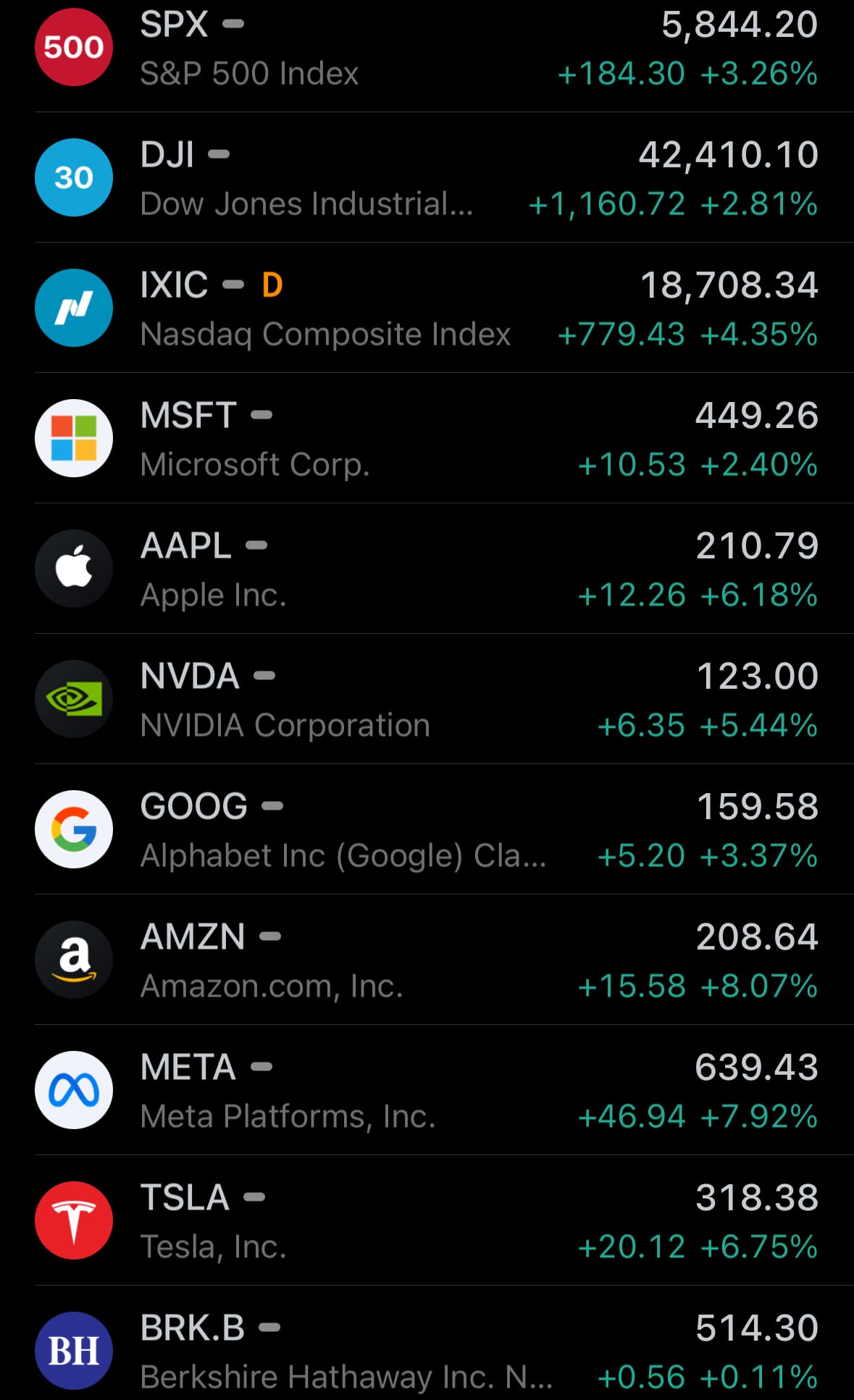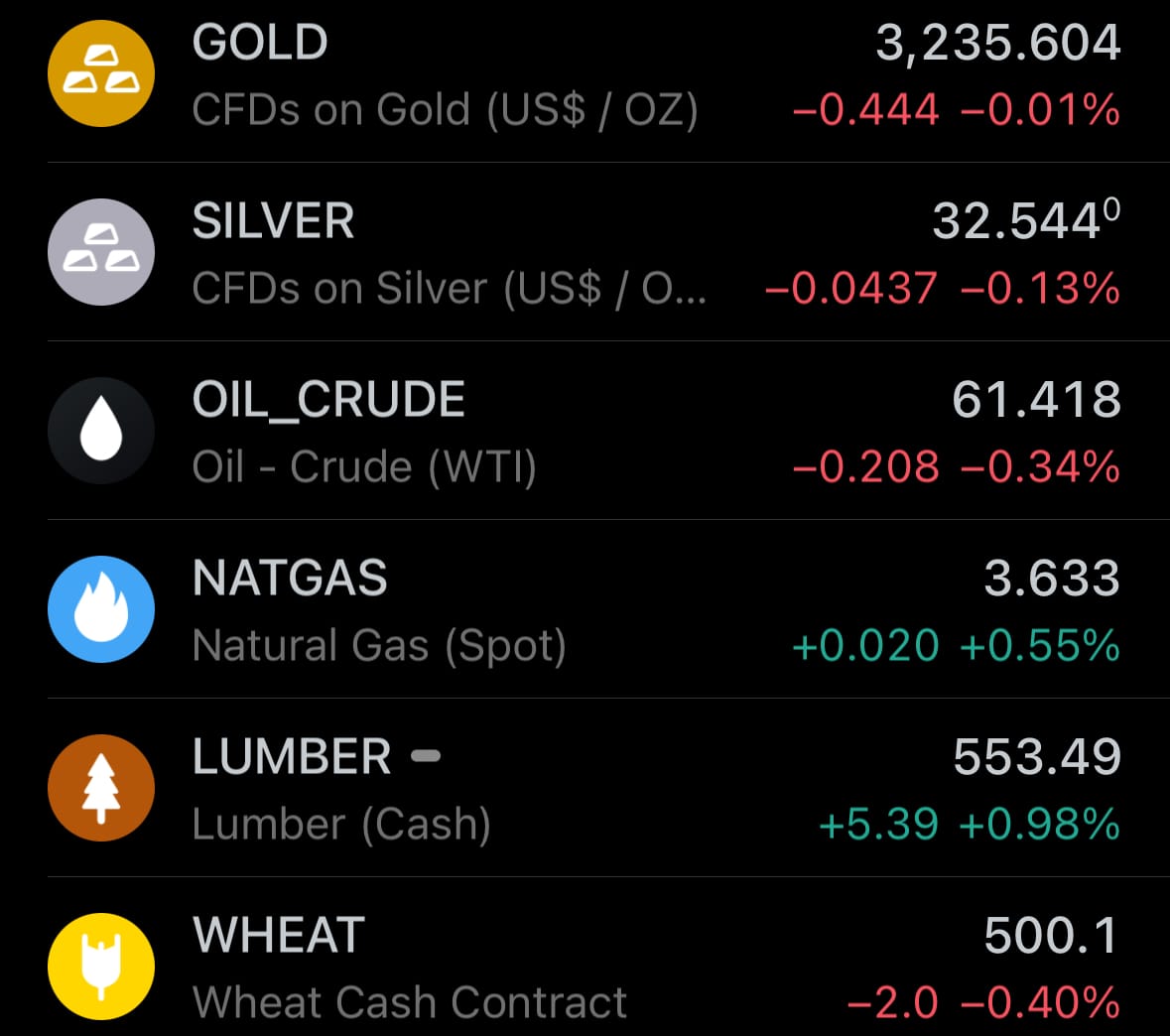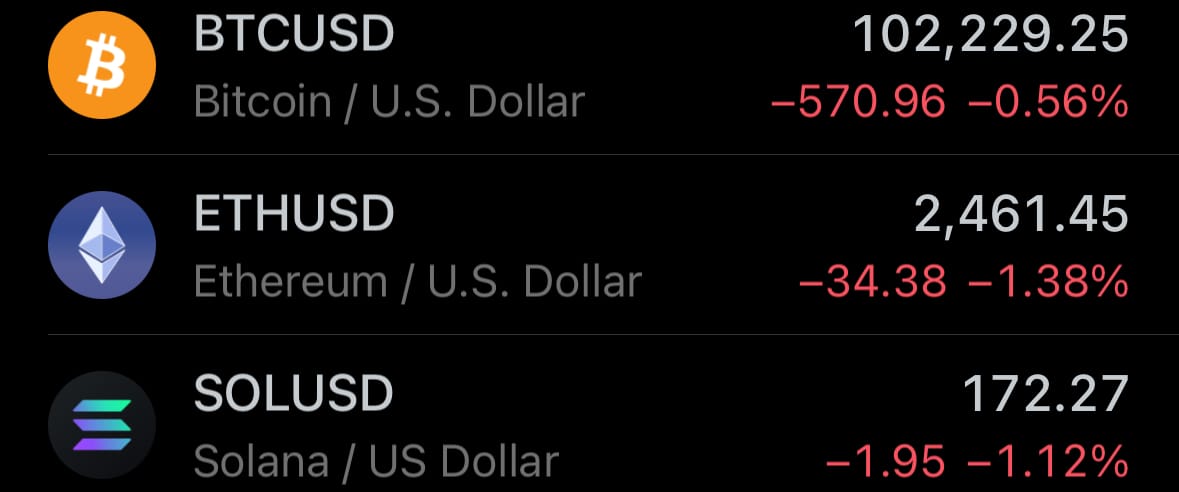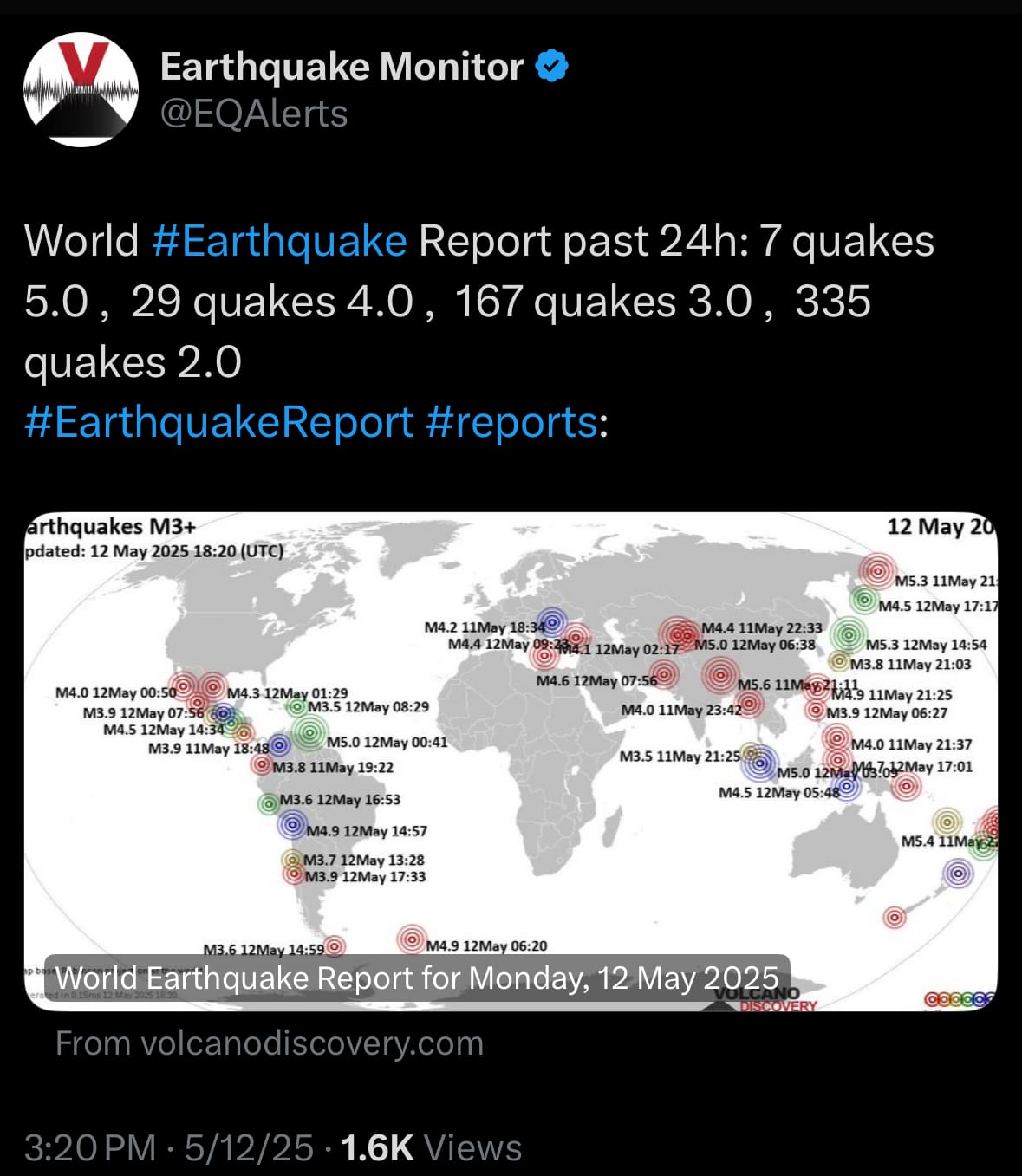Tuesday☕️

Trending:
- Yesterday, May 12, 2025, a group of 49-59 Afrikaner (Boer) farmers from South Africa arrived at Dulles Airport in the United States as refugees, marking the start of a targeted resettlement program. Greeted by U.S. officials, the arrivals expressed gratitude, with some waving American flags, signaling relief after fleeing reported violence and land disputes in their home country.

- The Trump administration, which had paused most refugee admissions, authorized this specific pathway, citing concerns over targeted attacks and discrimination against white farmers in South Africa. The situation in South Africa involves longstanding tensions over land ownership, rooted in apartheid’s legacy, and complicated by socio-economic disparities. Since the 1990s, reports indicate thousands of white farmers have faced violent farm attacks, alongside policies like land expropriation without compensation, which some argue exacerbate conflict.
Economics & Markets:
- Yesterday, May 12, 2025, Coinbase Global, the leading U.S. cryptocurrency exchange, was added to the S&P 500, replacing Discover Financial Services following its acquisition by Capital One. Effective before trading on May 19, this inclusion marks the first time a crypto-focused company has joined the index of 500 major U.S. publicly traded firms. With a market cap of $53 billion, Coinbase’s entry reflects its growing role in the financial ecosystem since going public in 2021, bolstered by Bitcoin’s rally past $100,000 and regulatory approvals for spot Bitcoin ETFs.

- The addition of Coinbase to the S&P 500 underscores a broader shift in traditional finance’s approach to cryptocurrencies and blockchain technology. Initially, many large financial institutions dismissed crypto as speculative or fraudulent, later resisting its rapid growth as it challenged conventional systems. However, the immutable and secure nature of blockchain has prompted a reevaluation. All banks and asset managers are now exploring blockchain integration, tokenizing assets, or developing their own digital asset platforms. Evolving regulatory clarity, including the SEC’s shifting stance and potential legislation like FIT21, has further supported this trend. The crypto industry, once viewed solely through the lens of Bitcoin or Ethereum, is now recognized for its underlying technology, which offers new possibilities for efficiency and transparency in global finance, prompting institutions to adapt or risk being left behind.
- Yesterday’s U.S. stock market:

- Yesterday’s commodity market:

- Yesterday’s crypto market:

Geopolitics & Military Activity:
- Yesterday, May 12, 2025, violent clashes erupted in Tripoli, Libya’s capital city in North Africa, following the assassination of Abdul Ghani al-Kikli, a key official in the Government of National Unity (GNU) and leader of the Stability Support Apparatus (SSA). The fighting pits SSA fighters against GNU forces, escalating tensions in the city. The GNU, supported by Turkey, has imposed a curfew, closed Tripoli International Airport, placed hospitals on emergency alert, and shut down schools to manage the chaos. Gunfire and explosions have been reported across central Tripoli, with military equipment, including tanks, seen in the streets.

- The conflict intensified as the First Support Battalion from Misrata, Libya, led by Mohamed Bahroun, allied with the SSA against the GNU and moved toward Tripoli, deepening divisions within the GNU’s coalition of factions. GNU forces have captured SSA bases in Tripoli’s Abu Salim and al-Hadbah neighborhoods, as well as the SSA headquarters, with many SSA fighters reportedly fleeing. Clashes continue in areas like al-Fallah, Ghorror, and southern Tripoli, with power outages affecting parts of the city. Unconfirmed reports suggest possible involvement of other groups like the Zintan Brigades or Khalifa Haftar’s Libyan National Army (LNA), and social media posts indicate the GNU may be preparing for a potential LNA advance from eastern Libya. The University of Tripoli has suspended all activities, and hospitals are bracing for mass casualties as the fighting shows no immediate signs of stopping.

Environment & Weather:


Science & Technology:
- Yesterday, May 12, 2025, OpenAI introduced a new functionality for its ChatGPT Deep Research tool, enabling users to export research reports as fully formatted PDFs within the ChatGPT platform. These PDFs incorporate tables, images, citations with hyperlinks, and referenced sources, offering a professional and organized format for sharing findings. Accessible via the share menu’s “Download as PDF” option, this feature supports both newly generated and existing reports, catering to users who need clear, structured documents for professional or academic purposes.

- The update enhances the Deep Research tool, rolled out earlier in 2025, which utilizes the o3 AI model to perform comprehensive web-based analysis. The PDF export addresses user requests for improved report presentation, as evidenced by community discussions calling for better formatting options.
Statistic:
- Largest public pharmaceutical companies by market capitalization:
- 🇺🇸 Eli Lilly: $678.30B
- 🇺🇸 Johnson & Johnson: $370.87B
- 🇺🇸 AbbVie: $336.23B
- 🇩🇰 Novo Nordisk: $302.60B
- 🇨🇭 Roche: $248.84B
- 🇬🇧 AstraZeneca: $216.93B
- 🇨🇭 Novartis: $215.18B
- 🇺🇸 Merck: $201.96B
- 🇺🇸 Amgen: $147.74B
- 🇺🇸 Pfizer: $131.27B
- 🇫🇷 Sanofi: $129.27B
- 🇺🇸 Gilead Sciences: $129.25B
- 🇺🇸 Vertex Pharmaceuticals: $112.82B
- 🇺🇸 Bristol-Myers Squibb: $98.05B
- 🇯🇵 Chugai Pharmaceutical: $85.15B
- 🇺🇸 CVS Health: $81.98B
- 🇬🇧 GlaxoSmithKline: $78.76B
- 🇦🇺 CSL: $74.46B
- 🇺🇸 Zoetis: $72.08B
- 🇺🇸 Regeneron Pharmaceuticals: $62.14B
- 🇩🇪 Merck KGaA: $60.37B
- 🇨🇭 Lonza: $49.14B
- 🇮🇳 Sun Pharmaceutical: $47.68B
- 🇨🇳 Jiangsu Hengrui Medicine: $44.89B
- 🇯🇵 Takeda Pharmaceutical: $44.73B
History:
- The history of pharmaceutical drugs originates in ancient civilizations, where natural remedies were used as early as 3000 BC in Mesopotamia, with clay tablets recording herbal treatments like poppy seeds (opium) for pain. In Egypt around 1550 BC, the Ebers Papyrus listed over 700 remedies, including willow bark (a precursor to aspirin) and mandrake. Chinese medicine, codified in texts like the Shennong Bencao Jing (circa 200 BC), emphasized herbal concoctions, while Greek physicians like Hippocrates (460–370 BC) and Galen (129–216 AD) used plant-based treatments alongside humoral theories. These remedies, often mixed with spiritual rituals, lacked standardization. By the Middle Ages, apothecaries refined compounding techniques, incorporating substances like mercury, despite toxicity risks. The Renaissance, spurred by Paracelsus (1493–1541), introduced chemical-based treatments, laying the foundation for pharmacology. The 19th century brought breakthroughs with the isolation of morphine (1804) and the synthesis of aspirin (1899), driven by advances in chemistry and germ theory, shifting medicine toward scientific precision.
- The 20th century transformed pharmaceuticals into a global industry, catalyzed by discoveries like penicillin (1928), insulin, and vaccines, which addressed infectious and chronic diseases. Post-World War II, government funding and regulatory bodies like the FDA (established 1906) fueled growth, enabling companies such as Pfizer, Merck, and GlaxoSmithKline to dominate with mass-produced drugs. The industry now grapples with high R&D costs (often over $1 billion per drug), intense competition, and ethical debates over pricing, patents, and access. Modern dynamics include biopharmaceuticals, AI-driven drug discovery, and personalized medicine, with innovations like mRNA vaccines (2020) showcasing rapid progress. However, challenges persist, including regulatory hurdles, global health inequities, and controversies over generic drugs, shaping an industry that balances profit motives with the imperative to address unmet medical needs.
Image of the day:

Thanks for reading!
Earth is complicated, we make it simple.
Click image to view the Earth Intelligence System:



Support/Suggestions Email:
earthintelligence@earthintel.news




